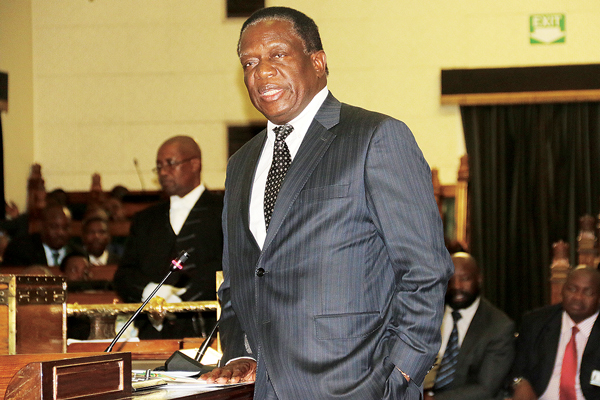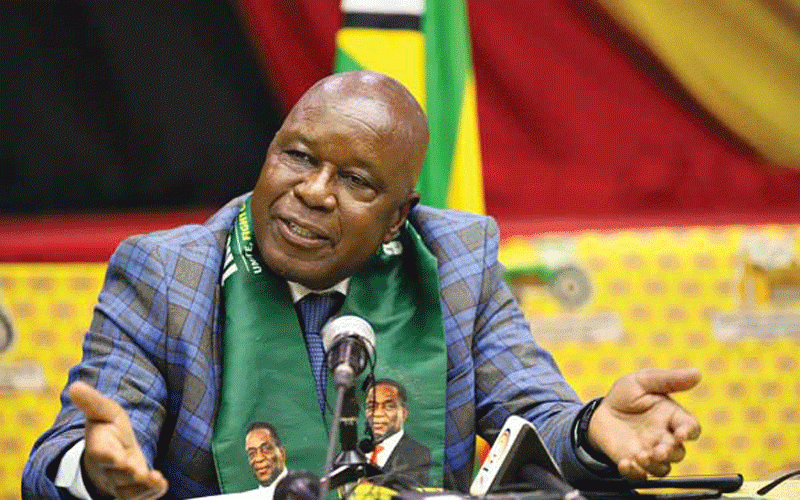
PRESIDENT Emmerson Mnangagwa’s first crack as Head of State has been received positively if the recent gains on the Zimbabwe Stock Exchange (ZSE) are anything to go by.
Since his inauguration last Friday, the ZSE has gained about $1,06 billion as at the end of this Tuesday’s trading showing positive investor sentiments in Mnangagwa’s proposed reforms.
During his speech, Mnangagwa talked about urgently implementing an urgent economic recovery plan, centring his economic policy on agriculture and weeding out corruption that has cost the country billions of dollars over the years. For all intents and purposes, Mnangagwa seems to not be wasting any time doing just that.
On Monday, he appointed an interim Cabinet of Patrick Chinamasa and Simbarashe Mumbengegwi as Finance and Foreign Affairs ministers respectively, in acting capacities. This, according to the presidency, was to ensure the two veteran politicians deal with critical government business in the interim.
On Tuesday, Mnangagwa struck again and issued a three-month moratorium for those who externalised funds and assets to bring them back into the country or face prosecution. He has also promised a lean Cabinet and cracked the whip in the civil service to nip in the bud the business-as-usual approach.
While these promises are encouraging, more needs to be done to sustain the confidence gained in his administration over the past few days.
While Chinamasa and Mumbengegwi have established themselves internationally, the duo represents the “old guard” in Zanu PF and may have nothing new to offer. We have no problem with Mnangagwa appointing them in the ruling Zanu PF politburo, but that’s as far as they can be useful, Zimbabweans demand a complete separation from the era of former President Robert Mugabe.
We believe Mnangagwa will need more progressive minds in key positions. These should be people who are more technocratic in their dealings and with proven credentials that are essential in reforming the country.
- Chamisa under fire over US$120K donation
- Mavhunga puts DeMbare into Chibuku quarterfinals
- Pension funds bet on Cabora Bassa oilfields
- Councils defy govt fire tender directive
Keep Reading
Why not pick some candidates from the corporate world, opposition political parties and even some people of repute together in the new Cabinet to deliver on his promises?
Again, positioning the economic plan on agriculture is good considering the good season this year, but production should remain the central focus. Agriculture is dependent on seasons and, as such, can benefit from improved rains, but considering how rains are seasonal and Zambia is already the biggest exporter of grain in the region, not much cash can be generated from it. The focus should also be on government supporting the manufacturing sector to create more jobs for the population.
Production has a ripple effect on creation of jobs, investment opportunities and cash generation in the form of exports. In the same breath, Mnangagwa should quickly deal with the liquidity crisis in the short-term, rework the obstructive Indigenisation Act as well tweaking other legislation.
We believe the new administration should ensure that companies are able to make foreign payments for raw material supplies.
The obtaining situation, where companies are failing to make payments for raw material supplies is retrogressive and a huge setback for the new regime if plans to grow industries are to be realised.
Clearly, Mnangagwa must move with speed to harvest from this optimism and growing confidence. Failure to do so would draw parallels with Mugabe, known for crafting good policies, but falling short in implementation due to patronage.











